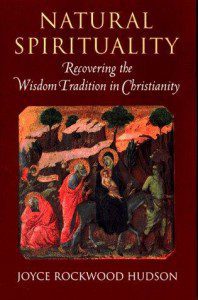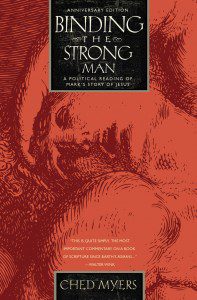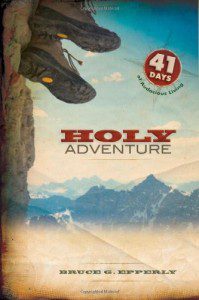During Ordinary Time in 2011, we studied The Gospel According to Matthew. The following are the sermon titles and a brief excerpt of the content:
“The Fathers (and Mothers!) of Jesus” (Matthew 1)
Given the ‘dirty laundry’ in Jesus’ family tree, the ironic and unexpected — yet nevertheless clear — invitation is to see that no matter who you are, what you’ve done, or who your family is, God is working through you to birth new life, new love, and new hope in the world.
“Listening to God in Your Dreams” (Matthew 2)
Many Christians — even those who claim to take the Bible with upmost seriousness — fail to take their dreams seriously even though the Bible is replete with significant dream interpretation from Jacob’s ladder to Joseph’s multi-colored ‘dreamcoat,’ from Pharaoh to Nebuchadnezzar, and from Pilate’s wife to Peter’s rooftop vision. In the third-century Rabbi Hisda, went so far as to say that, ‘A dream uninterpreted is like a letter (from God) unopened.’ From scripture to Carl Jung, what tools do we have as twenty-first century Christians for listening to God through our dreams?”
“Harold Camping, John the Baptizer, and Jesus: We Are The Ones We’ve Been Waiting For” (Matthew 3)
Instead of keeping ourselves washed and pure while waiting on God to act (like John the Baptizer) or calculating the date of God’s Judgment Day (like Harold Camping), Jesus invites us to realize that, “We are the ones we’ve been waiting for!” We need to leave behind “Left Behind” theology that is violent, fear-based, and riddled with anxiety.
“Even the Devil Quotes Scripture” (Matthew 4)
The challenge is not to use scripture for our own predetermined ends, but to allow scripture to point us toward God alone: the God who is not there to impress our friends and family, the God who is not there on a quid pro quo basis. Jesus’ temptations remind us that much drama derives from our terms for ourselves and God, but God can only truly be experienced on the stripped down, desert terms of God alone.
“Jesus, Jingoism, and Osama bin Laden” (Matthew 5)
Jesus challenges us to see a more difficult, more challenging, and ultimately better way of engaging our enemies. The way of war teaches us to be willing to pursue evildoers such as Osama bin Laden “Dead or Alive” — to be willing, if necessary, to win a “single victory” in which the enemy is dead and we are alive. But the way of Jesus seeks, in MLK’s words, a “double victory.”
“The Fierce Urgency of Now” (Matthew 6)
Jesus’ command to “Consider the lilies” may be an equally-difficult and equally-central teaching as “Love your enemies.” Indeed, taking time to “consider the lilies of the field” and to “look at the birds of air” may be precisely what allows you (and Jesus before you) to cultivate the inner peace, equanimity, and sense of interconnection with all things — including your enemies! — that makes loving your enemies conceivable and even possible.
“Building Your House on Sand” (Matthew 7)
We must test even Jesus’ teachings in the crucible of our own firsthand experience. Only then can we know what we truly believe. Only then can we find the foundation on which we can build our house of faith.
“How Does Matthew Read the Bible?” (Matthew 8-9)
This sermon references our ongoing theme of noticing the differences between “The Gospel According to Mark” in contrast to “The Gospel According to Matthew” — especially the numerous ways that Matthew intentionally shapes his telling of the Jesus story to compare Jesus to Moses. This sermon also invites you to notice the way the different figures in the Bible use scripture — that is, the parts of the Bible that had been written in their day. Specifically, in Matthew 8-9, I invite you to consider that Isaiah and Matthew got it wrong that “He took our infirmities and bore our diseases,” as well as that both Hosea and Jesus got it right that “God desires mercy, not [vicarious] sacrifice.”
“Jesus’ Standard Operating Procedure” (Matthew 10)
Jesus’ ‘Standard Operating Procedure’ assumes that not everyone is homeless. But you could argue that the extent to which we householders do (or do not) extend hospitality is the extent to which we will be deemed worthy (or unworthy), the extent to which would-be disciples of Jesus will leave their peace on our house or shake off the dust from their feet.
“Wisdom Is Vindicated by Her Deeds” (Matthew 11)
“Each of our diverse ways of being the word will ultimately be tested by the fruit — the results — of our efforts, for what make a difference in this world is ultimately not the words shouted back and forth between adults acting like children on a playground, but our acts of loving-kindness toward one another — for ‘wisdom is vindicated by her deeds.’”
“There Is No Unforgivable Sin” (Matthew 12)
Matthew 12:31-32 is comprised of two, compound sentences. In each case, the first half of the compound sentence sounds like Jesus: “People will be forgiven for every sin and blasphemy…” and “Whoever speaks a word against the Son of Man will be forgiven….” But what do we do about the second half of each sentence that doesn’t sound like Jesus: “but blasphemy against the Spirit will not be forgiven” and “but whoever speaks against the Holy Spirit will not be forgiven, either in this age or in the age to come.” Anytime you start making a list of what “will not be forgiven,” especially a list of what “will not be forgiven, either in this age or in the age to come,” you begin sounding less like the historical Jesus and more like the violent 1992 Western by Clint Eastwood titled, Unforgiven. I invite you to consider some reasons why there may be no unforgivable sin.
“According to Matthew, Jesus Said Some Strange Things” (Matthew 13)
Two thousand years after the life of the historical Jesus, the secrets of the kingdom of heaven have been evident all along. We are the ones we’ve been waiting for. It is not God who hardens hearts or causes deafness or blindness. We are responsible for what we choose to hear and see. We are responsible for what we choose to allow to compassionately break our hearts.
“Everything’s a Miracle” (Matthew 14)
How can we understand the claims about Jesus’ 1st-century nature miracles and healing miracles in light of our 21st-century knowledge?
“How To Read the Bible” (Matthew 15)
An old Latin phrase, “Cui bono?” invites us to ask “To whose benefit?” In other words, when evaluating various method of reading the Bible, we should ask, “Who benefits from this interpretation?” Do the rich and powerful benefit, resulting in a solidification of thestatus quo (because the word “tradition” is often a cypher for wanting to keep society the same — not necessarily as it once was, but as it currently is in recent memory)? Or, does your biblical interpretation give all people, including the poor and marginalized, new hope and new life?
“On What Kind of Rock Is The Church Built?” (Matthew 16)
Like Peter, we are often sinking in the water of our life as much as we are walking on water. There are many times, like Peter, that we fall to ground and are overcome by fear — or fall asleep when we are tasked with staying awake. We are imperfect “rocks,” but the keys to the kingdom of God have been given, not only to Peter’s (the “Rock’s”) alleged heirs, but to all of us. The question becomes, what kind of rocks do we want to be? On what kind of rocks do we want our church to be built?
“Same Scripture, Countless Interpretations” (Matthew 17)
It is illegitimate for anyone to blame the Bible for their hate, apathy, or vengefulness. I would invite you to consider further that whatever does not lead to love, compassion, forgiveness, justice, mercy, and grace — what Paul called “the fruit of the Spirit: love, joy, peace, patience, kindness, goodness, faithfulness, gentleness, and self-control” (Galatians 5:22-23) — has strayed from the way of God as revealed in the life of Jesus.”
“Keep Your Eye on the Ancient Interpreters” (Matthew 18)
Although modern biblical scholarship may rightly reveal that many traditional assumptions about the Bible are wrong, the Bible’s ancient interpreters can point us to how God is still speaking to us through scripture — just as God always has and always will.
“Jesus, #OccupyWallSt, and the Rich Young Ruler” (Matthew 19)
It is often said that the best way to preach a sermon is with the Bible in one hand and the newspaper in the other hand. This past week, I found myself unable to read these hard sayings from Jesus without thinking about the Occupy Wall Street protests that are cropping up across our nation.
“Jesus’ Parable of the Job Creator, the Day Laborers, and #OccupyWallSt” (Matthew 20)
Both then and now, we need more generous landowners. Both then and now, we also need to find a way of living together that doesn’t leave some of our fellow humans in a treacherous, inhumane daily struggle to stay out of poverty. Jesus’ term for this sort of social contract — for an emphasis on the commonweal, the commonwealth, the common good, the public welfare — is the kingdom of God.”
“#OccupyChurch: Jesus Threw out the Moneylenders for a Reason” (Matthew 21)
We need a more nuanced understanding of anger, beyond simply dismissing this emotion as one of the Seven Deadly Sins. As the bumper sticker says, perhaps there is some truth that, “If you’re not outraged, you’re not paying attention.” So, holding in mind Jesus’ aggression against the Temple in the first-century, as you look at our world today, listen to the radio, and read the newspaper, how is God calling you to “harness the power of anger in the work of love?”
“How an Anti-King Parable Was Co-opted as a Kingdom of God Parable” (Matthew 22)
A ‘Happy Halloween’ Homily: A Spooky-Scary, Empire-Critical Reading of the Parable of the Wedding Feast.
“Jesus’ Rant: Against Corrupt Religious Leaders” (Matthew 23)
Religious and political leaders both then and now are all too often narcissistic hypocrites, but Jesus calls us both then and now to “the weightier matters of justice and mercy and faith.” In recent days, if you have caught yourself “sweatin’ the small stuff,” how may God be calling you in the coming week to relax your grip on minor matters and focus, instead, on the weightier matters?
Click on any of the bolded sermon titles above to read the full sermon text.
The Rev. Carl Gregg is the pastor of Broadview Church in Chesapeake Beach, Maryland. Follow him on Facebook (facebook.com/carlgregg) and Twitter (@carlgregg).












